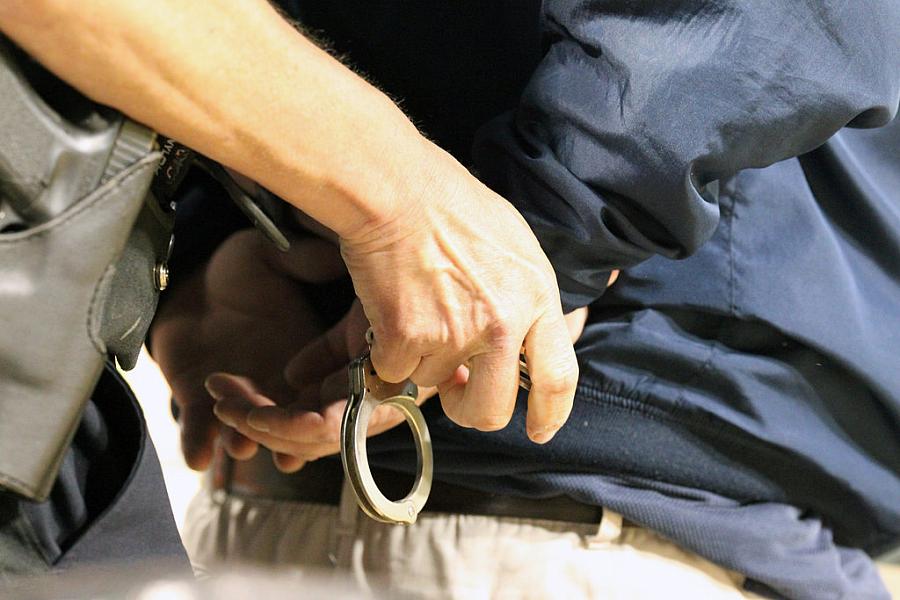In Tulsa, county system of ‘debtors’ prisons’ leaves children in the lurch

On the Tuesday morning following the Fourth of July holiday, there’s not a single seat to be found in room 173 of the Tulsa County Courthouse.
With more 130 people on the arraignments docket this morning and not enough seats, all mothers, cousins, girlfriends and boyfriends must wait outside.
This courtroom is where you end up in Tulsa County if you can scrape together enough money to bond out of jail after an arrest. In the hallways before the morning docket begins, many wait for attorneys they’ve never met and can barely afford.
Because in the Tulsa County District Court system, if someone has enough money to bond out of jail, the judges will usually refuse to appoint them a public defender. If you have enough money to get out of jail, surely you can afford to pay an attorney, judges will argue.
Those can’t afford bond or don’t want to give up their shot at a public defender must appear via video camera from the jail for their arraignment, and then wait for weeks, months (or even years) behind bars for their day in court.
While many states have enacted reforms in recent years to try to reduce their overall incarceration rates, a recent study by the Vera Institute of Justice shows that in many states, the burden is simply shifting to local jails.
One-third of the 2.2 million incarcerated Americans are in jails.
And Oklahoma may be ground zero: In 2003, the state locked up 7,963 per 100,000 of its residents in jails, compared to a national average of 6,059 per 100,000 residents (looking at jail admissions for state residents ages 15-64).
Ten years later, that rate in Oklahoma skyrocketed to more than 13,200 per 100,000 residents getting thrown in jail — more than double the national average.
Because Oklahoma also has high rates of incarceration in its state prisons (it’s long held the title as the No. 1 state for putting women in prison, per capita, and is among the top for men as well), there’s been a fair amount studied about what happens to children here when their parents go to prison.
But what happens to those same children when their parents are locked up in county jail, whether it’s for a few days or several weeks or months?
That’s what I’m going to examine through my 2016 National Fellowship: Flaws that exist in our current criminal system at the county jail and court level that could be adversely impacting the lives and development of those children.
Poverty plays a huge role in this cycle: When New York Times columnist Nicholas Kristof recently visited the Tulsa County jail, he learned what reporters here have known and reported on for some time. The county has essentially recreated a system of debtors’ prison.
People are being sent to jail because they can’t afford to pay court costs.
Furthermore, for those who can afford to post bond and get out before trial (perhaps to keep a job or care for their children), if they happen to show up to court hearings several times without hiring an attorney, most judges will literally send them back to jail so the court can appoint a public defender.
It’s an expensive solution that keeps the jail crowded and potentially puts at risk the long-term well-being and development of the children of those who are locked up.
“The reality is, if they can pay enough to get out, they may not be able to pay their attorney,” said Stephanie Horten, director of the Women’s Justice Team, a unique program in Tulsa County that aims to assist women facing first-time criminal prosecution, or the revocation of a deferred or suspended sentence. “And if they haven’t paid the attorney yet, the case will get passed.”
Back in court for that morning’s arraignments, some of the men and women present say they’ve pre-paid an attorney who didn’t show up. Others tell the judges stories about how they didn’t get their paycheck prior to the court date, so they couldn’t hire an attorney yet.
The judge warns many of them that if they come back to court one more time without hiring counsel, he will put them in jail.
So a lot of times, people just don’t show up, Horten explained.
Those who don’t show up for their arraignment are dealt with swiftly: The judge reads their name, notes the lack of appearance and simply says: “Bench warrant. Bond forfeited. Bail tripled.”
Marcus Stokes barely makes it to the courtroom on time, and when he does, he has two very young children in tow, one in his arms and one in a baby carrier. There’s also a 6-year-old at home. An attorney Stokes hired moments earlier tells the judge that his client is a single father who didn’t have any childcare options available that day.
The judge reprimands Stokes that he’s lucky the attorney is appearing with him this morning in court. If the attorney hadn’t been there, the judge said, he would have thrown Stokes back in jail and his children would have been placed in temporary custody with the Department of Human Services.
But if Stokes can’t pay the attorney, or his court costs: What happens next time?
[Photo by Keith Allison via Flickr.]

